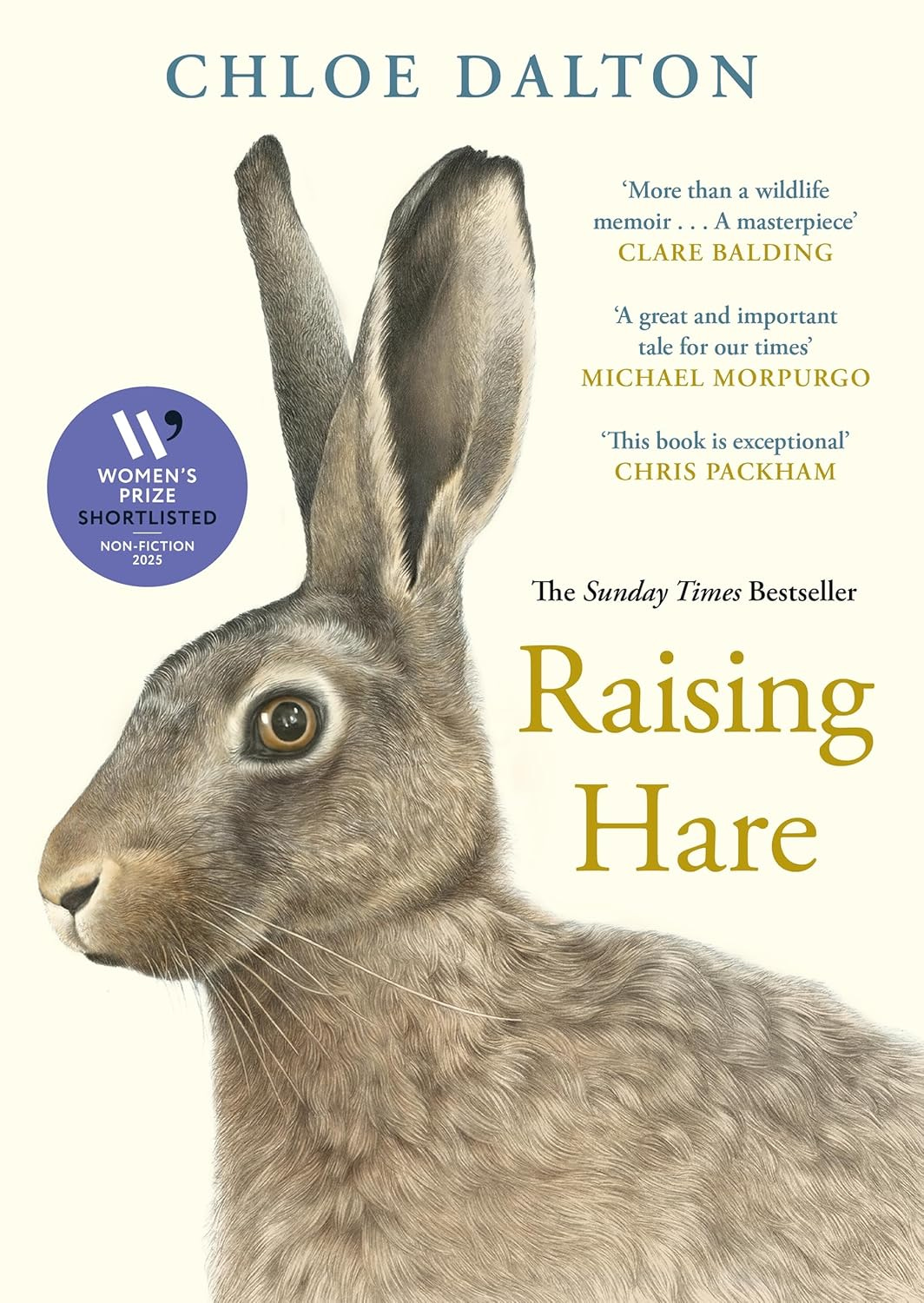
‘I’m reading a really good book about a hare.’ This is what I’ve been telling everyone recently. Family, friends, random people in bookshops and anyone who will listen.
‘Hair?’ they all said.
‘Hare.’
‘Hair?’ Cue pointing to head.
‘As in animal in a field,’ I said. ‘Hare.’
‘Hare! I thought you meant hair.’
Once the confusion has been resolved, and we’ve established what kind of hair/hare I’ve been reading about, they’ve turned to me, their gaze a question mark. Why are you reading a book about a hare? And why are you telling me about it?
On more than one occasion, they looked like they might prefer to hear about hair of the kind you get on your head.
‘It’s a beautiful book,’ I’ll gush. ‘Really lovely.’ Then I attempt to tell them about it and each time, no matter how hard I’ve tried, I’ve failed to grab their attention. Not one of them has rushed off to the bookshop to bag a copy.
Maybe it’s just me into hare books, I thought. But the book—Raising Hare by Chloe Dalton—has been shortlisted for the Women’s Prize for Nonfiction, Waterstones Book of the Year 2024 and The British Book Awards’ Book of the Year and many more. So, no, not just me.
Raising Hare (I’ve just typed hair!) is a memoir about one woman’s remarkable relationship with a leveret, a baby hare. Dalton, a political adviser in London, leaves the city during lockdown and retreats to her home in the country. She finds the creature seemingly abandoned and helps it. What happens next is a remarkable story of the connection between animals and humans.
Dalton writes about the challenges of caring for the hare when she has no idea how to do that. She refused to cage it, letting it have free run in her home hoping that it would eventually return to the wild. She does not name the hare, tries to avoid touching it or confining it. Hare and human dance around each other and still the bond between the two is strong and wonderful to witness.
As soon as I heard about this book, I bought a copy. I love memoir and adore animals, so it was perfect for me. It’s a tender and emotional book, beautifully written, and so poetic that I made sure I read it slowly so I could enjoy every word. I also didn’t want to get to the end and be devastated by loss. Hares don’t have long lifespans, and I’ve had a lot of animal death this past few years and couldn’t take another. No spoilers here, but it was the most beautiful ending.
It's a book that made me think about how humans treat animals. How often do I see people shooting rabbits and hares and feel powerless to stop them? Why do they shoot? Why? Why? Why?
When I saw a farmer on his tractor ploughing his field, I wanted to stop and tell him to take more care. Hares don’t run away. They freeze, so during ploughing season many of them die. Surely, we can all be more mindful of the animals around us.
And, of course, I’ve been raving about the hare/hair book to everyone I’ve met. I really think this is a special book that deserves its place on the shortlists.
Have you read it?
Interested in reading it?
I’d love to hear. Let me know in the comments.
About me: I’m Liz Champion, a writer from Yorkshire who loves animals and books. I write mainly about the magic and mayhem of midlife with occasional random posts about hares and books.





Going to the library app to see if they have this right now!
I really want to read this at some point. Have you read 'H is for Hawk' by Helen Macdonald? It sounds in a similar vein and is fantastic. On another note, there's a war poem on a GCSE syllabus called 'Bayonet Charge' by Ted Hughes which mentions a hare and its shock as it finds its field turned into a battleground. I didn't know about hares freezing - it makes a lot of sense in the poem now.